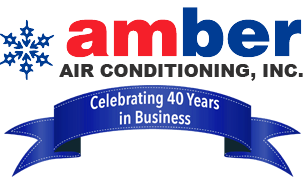In 2013, the U.S. Department of Energy’s plan for increasing HVAC efficiency was to go into effect. After working with leaders in both the HVAC and utilities industries, the DOE’s plan to increase HVAC efficiency standards from a minimum of 78 AFUE (annual fuel utilization efficiency) to a new minimum of 90 AFUE seemed destined to make a significant impact in reducing energy consumption. Unfortunately, these standards came at a high price. It became evident that many homeowners would struggle financially trying to comply with the proposed higher HVAC efficiency standards. The major problem presented with these higher AFUE ratings is that only a condensing furnace would be able to meet the new minimum requirement. While there is little doubt that a condensing furnace can offer increased energy efficiency and meet the 90 AFUE proposed by the DOE, implementing this plan would require homeowners to undertake costly and extremely difficult retrofitting measures before this new […]
Is Your HVAC System Protected From Power Surges?
Homeowners make numerous moves to guarantee their home is secured against various mishaps. They buy homeowners insurance. They lock their doors when they are out. A few homeowners even introduce security cameras. Homeowners additionally perform a great deal of upkeep on their home, including HVAC maintenance to guarantee that costly breakdowns don’t happen. Then again, relatively few homeowners consider ensuring their homes in the event of a power surge. The homeowners that do stop to consider this as a component of protection generally only buy equipment like surge protection power strips, or exceptional electrical outlets. Their computers, printers, and other smaller devices wind up plugged into such equipment for protection in the event of an internal or external power surge. At the point when these steps are finished, most homeowners view themselves as protected against a power surge. This reasoning is a mistake. Your home’s HVAC system also needs secured against inward and outer power […]
How To Keep Your Home Cool In Summer
Summer brings plenty of pleasures to look forward to; however, the sweltering, steam bath–like days are nothing to look forward to. The good news is that there are a number of summer cooling tips for surviving a hot spell without sending the electricity bill soaring. The heat of summer can mean astronomical power bills if one relies solely on air conditioning to keep the home cool. Cooling Tips for Your Home · One of the most effective house cooling tips is to prevent heat buildup within the house. Many household appliances and fixtures such as lighting and electronic devices are sources of internal heat gain. Therefore, one should position the television, lamps and other heat producing appliances far from the air conditioner’s thermostat, since the heat that such devices produce causes the cooling unit to think the house is hotter than it is, resulting in the cooling system working harder than is necessary and wasting […]
Temperature Swings Lead To Burst Pipes In Home Utilities And HVAC Systems
There are precautions every home owner needs to take to prepare for the potential damage that changing winter temperatures can cause to a home’s pipes and by extension, its HVAC system and utilities. We have all heard of people whose pipes have burst in the wintertime. Some basic Home Utility Maintenance can prevent that. What steps have you taken to prevent your pipes from rupturing? Many people mistakenly believe that the formation of ice in a pipe pushes against the pipe’s walls and makes it burst. That actually is not true. While ice formations in pipes form blockages, it is not at the site of the blockage that the pipe ruptures. What, then, does cause pipes to burst in cold weather? To answer that, we first need to understand how temperature swings cause contraction, expansion and breakage. In cold weather as water cools its molecules slow their movements. As movement slows, the molecules get closer […]
How To Check When A Central Air Conditioner Needs To Be Charged
Overview Air conditioning is not only a luxury in homes, but a necessity. Whereas there are many reasons that can render your air conditioner non-functional, there are ways through which you can identify if your central air conditioner needs charged. Before assuming your central air conditioner is totally broken or scheduling a repair/ replacement with the professionals, check if the fans, vents or thermostat work as expected. If any of the above parts work fine, schedule to have a professional HVAC service provider come and check your air conditioner Refrigerant’s status, and charge it if it needs charging. Checking thermostat A programmable thermostat allows your air conditioner to switch off when no one is around and switch back on when the house gets occupied. You can check if your thermostat is working as it should by switching on your air conditioner without tampering with the thermostat. If the temperature cools, yet the thermostat does not […]







